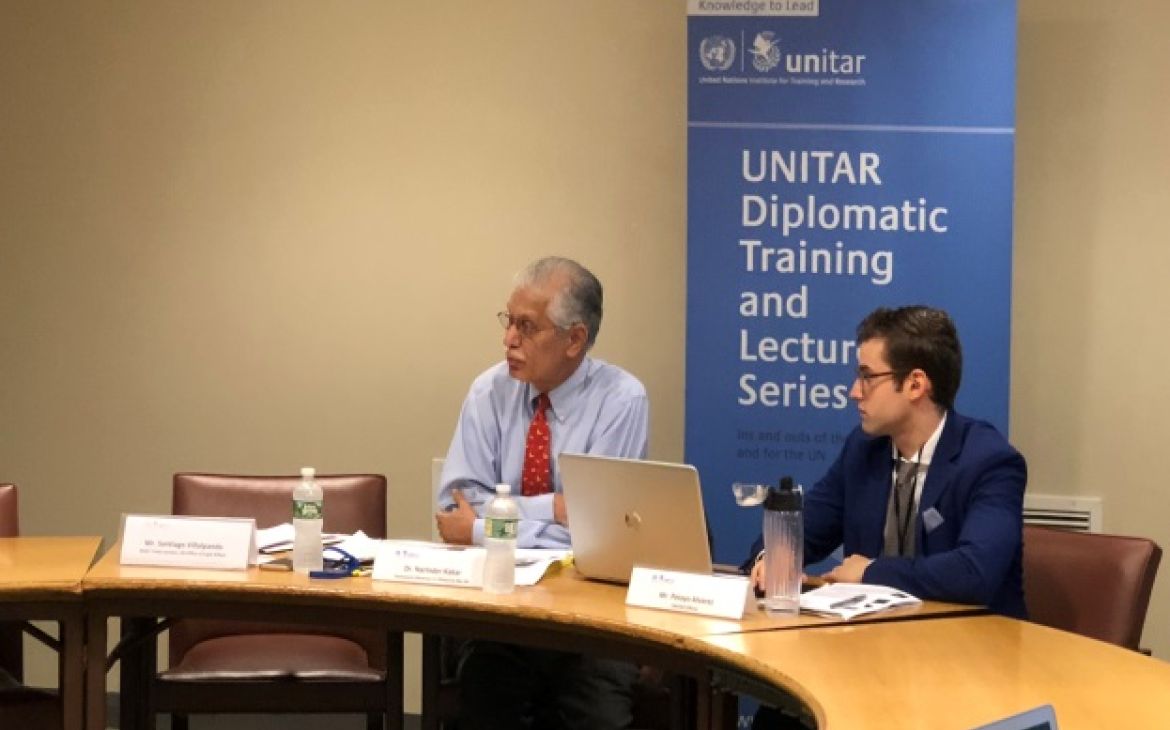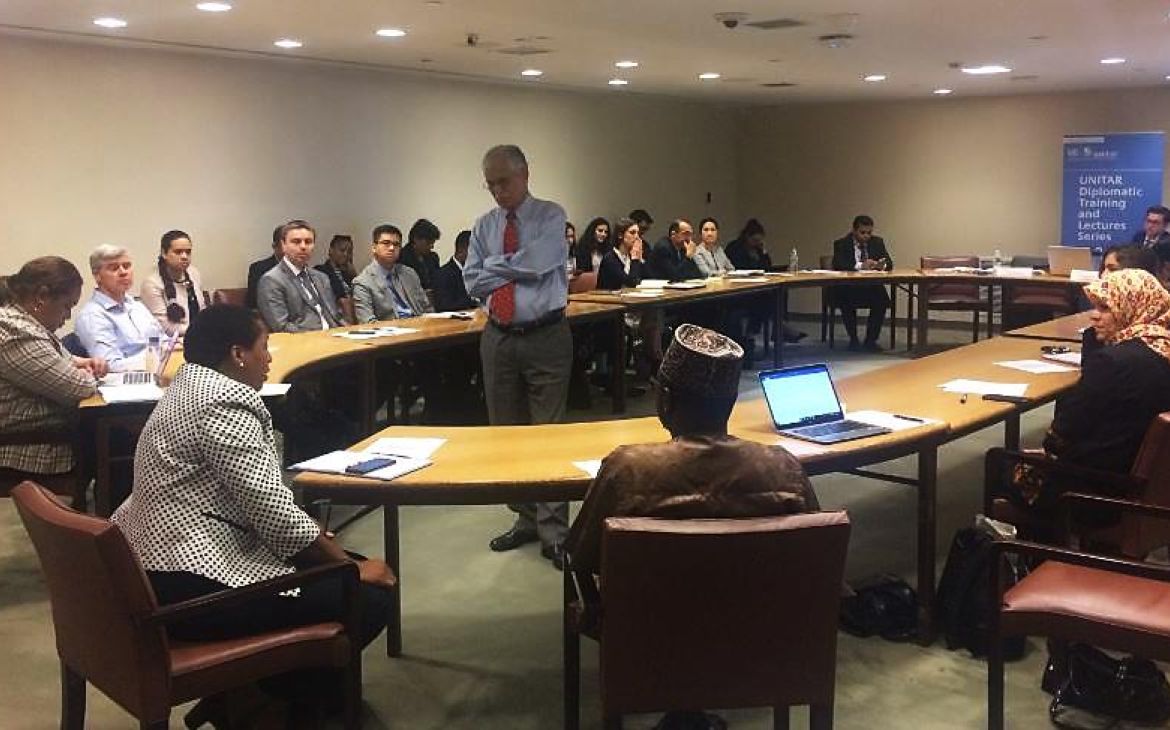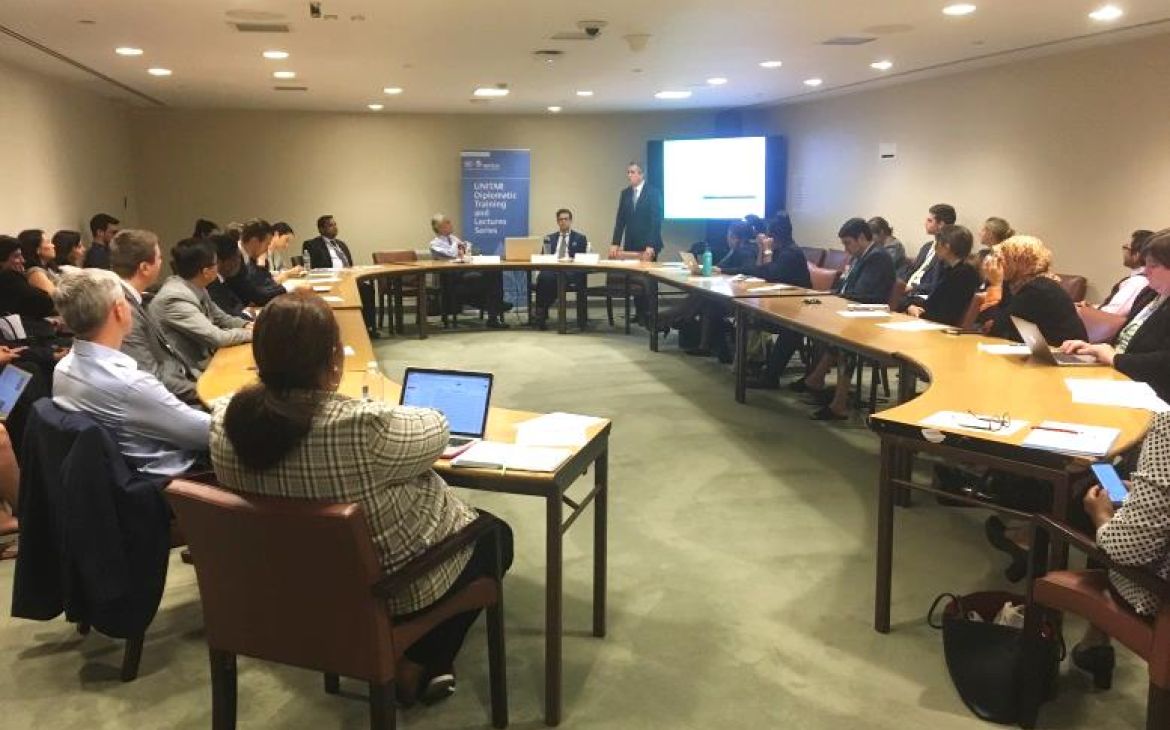24 May 2018, New York, USA - United Nations Institute for Training and Research (UNITAR) organized a workshop titled “Climate Change and the Paris Agreement: Challenges and Expectations” conducted by Professor Narinder Kakar, the Permanent Observer for the United Nations mandated University for Peace, and Mr. Santiago Villalpando, the Chief of the Treaty Section of the United Nations Office of Legal Affairs. Professor Kakar also serves as Director and Adjunct Professor on UN Environmental Diplomacy Programme at the Elisabeth Haub School of Law of Pace University. The workshop began with a few opening remarks on the importance of the Paris Agreement by Mr. Pelayo Alvarez, who also thanked Professor Kakar and Mr. Villalpando for all their efforts in preparation for the workshop. He then gave participants a brief summary of what to expect from the workshop.
Professor Kakar guided the participants the road from Kyoto to how In December 2015, with 174 countries adopting the new historic Paris Agreement on climate change. 195 Parties to the UN Framework Convention on Climate Change (UNFCCC) pledged to curb emissions, strengthen resilience and joined to take common climate action. This followed two weeks of negotiations at the United Nations climate change conference in Paris (COP21).
During the session, participants were explained all the crucial areas that were essential for a landmark conclusion under the new commitment, which are: mitigation – reducing emissions fast enough to achieve the temperature goal; a transparency system and global stock-take– accounting for climate action; adaptation – strengthening ability of countries to deal with climate impacts; loss and damage – strengthening ability to recover from climate impacts; and support – including finance, for nations to build clean, resilient futures.
The main elements of the agreement made in Paris were discussed. Questions raised by the audience included the debate on what impact this new agreement will have in the achievement of the SDGs; what challenges rise ahead for the implementation of the new climate change commitments or and what efforts do countries have to make in order to mitigate and adapt climate change effects.
Mr. Villalpando, as chief of the Treaty Section, was in charge of analysing, registering, filing, recording and publishing treaties and other international agreements such as the Paris Agreement of 2015, pursuant to Article 102 of the Charter. Mr.Villalpando then discussed the impact of the climate deal and its meaning for the world, while sharing his personal experience of the Agreement with the participants. He deliberated on the financial frameworks needed to carry out the agreement in developed and developing countries. Villalpando then underlined the various issues encountered when drafting the Agreement, such as how to exploit a very divers set of data in order to establish a fair universal implantation of Paris Agreement. He analyzed the importance of this agreement for the achievement of the rest of the goals in the 2030 Agenda for Sustainable Development. Mr.Villalpando gave participants an insight of his work during the drafting of the Agreement, the challenges he and his team faced, and gave participants a more precise understanding of the Agreement by answering to their questions.
By the end of this session participants were able to identify the impact of the climate change and its meaning for the world, understand the significance of the Paris Agreement, reflect on the necessary efforts countries need to take to achieve the commitments, consider the financial frameworks needed to implement the agreement in develop and developing countries; and analyze the efforts made to reach the sustainable development goals so far.




